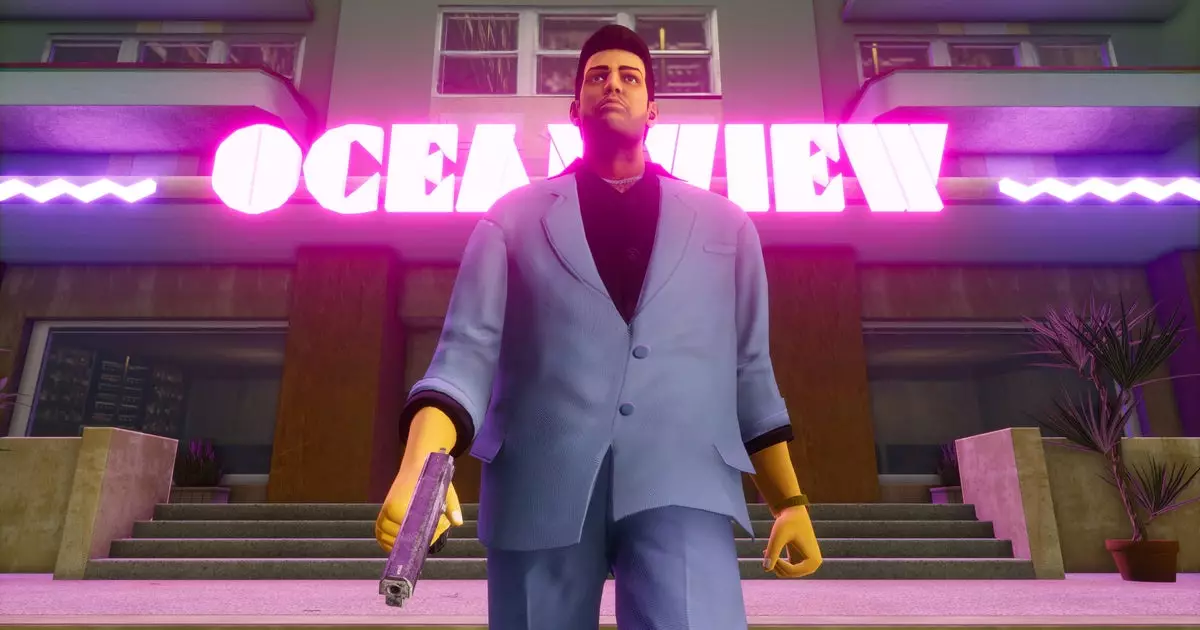Reflecting on the Grand Theft Auto (GTA) series inevitably takes individuals back to memories that shaped their gaming experiences in their formative years. For many, a shared laugh or a moment of sheer chaos—with the absurdity of a character wielding a wooden baseball bat to strike a fallen police officer in GTA 3—can bring nostalgia to life. Such moments were more than just gameplay; they marked a cultural phenomenon. This series introduced players to a vast open world where chaotic freedoms and comical mischief reign supreme, forever altering the gaming landscape. However, as gaming technology and cultural perceptions have evolved, the question arises: do contemporary players appreciate the groundbreaking nature of the series as much as we once did?
While many cherish the memories associated with earlier installments, revisiting those titles may come with unexpected disappointments, especially when the remastered versions, like Grand Theft Auto: The Trilogy – The Definitive Edition, receive mixed reviews. This reception can deter players from diving back into those classic iterations, as evidenced by the numerous critiques of their graphical and gameplay updates. For fans who long for the unfiltered essence of the original games, enhancements that fall short of expectations can be particularly frustrating. The general weariness surrounding these remastered editions serves as a reminder of the delicate balance between nostalgia and the realities of modern gaming.
Recently, a new feature called ‘Classic Lightning’ was introduced, designed to restore the atmospheric brilliance of the original titles. However, its late arrival—originating from the mobile versions, released in collaboration with Netflix—leaves some players feeling unenthusiastic. Aesthetics can significantly impact the gaming experience, and the update prompts discussions about how much care and attention developers infuse into revitalizing classic games. Furthermore, concerns have emerged regarding the removal of Grove Street Games from the splash screen in the latest updates, eliciting responses that range from disappointment to indignation. Such moves often stir debate over corporate decisions in the gaming world, reflecting the complexities of maintaining a beloved brand while navigating new avenues for potential enhancements.
As Grand Theft Auto continues to evolve, fans remain hopeful for a more substantial and polished experience than what has been offered. Take-Two Interactive, the game’s publisher, projects confidence regarding a new release, hinting at a 2025 launch. This promise hints at a reinvigorated Horizon for the series—a chance to reestablish its presence in the fast-paced modern gaming world. As fans await this upcoming release, it becomes essential to reflect on not only the gameplay mechanics and visual aesthetics that have become the hallmark of the series but also the emotional connections formed through these past experiences.
The Grand Theft Auto series embodies more than just a collection of games; it encapsulates a significant chapter in gaming history. The dialogue about nostalgia, contemporary reboots, and future expectations remains vital as platforms for gaming continue to develop. As we move forward, the challenge lies in appreciating the past, while also engaging critically with the path ahead. The evolution of Grand Theft Auto stands as a testament to the industry’s progress and the ongoing quest to marry nostalgia with innovation.


Leave a Reply
You must be logged in to post a comment.